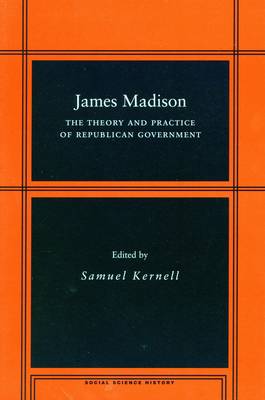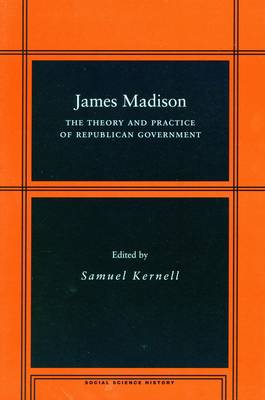
- Retrait gratuit dans votre magasin Club
- 7.000.000 titres dans notre catalogue
- Payer en toute sécurité
- Toujours un magasin près de chez vous
- Retrait gratuit dans votre magasin Club
- 7.000.0000 titres dans notre catalogue
- Payer en toute sécurité
- Toujours un magasin près de chez vous
James Madison
The Theory and Practice of Republican Government
Description
In recent years, the study of James Madison and his contributions to early American politics has enjoyed a growing audience among scholars and students of modern American politics. Not only did Madison establish the fundamental American concept of pluralism, his appreciation of the logic of institutional design as a key to successful democratic reform still influences modern theory and research.
This book evaluates the legacy of James Madison as the product of a scholarly politician--a politician who thought carefully about institutions in the context of action. It brings together thoughtful responses to Madison and his theory from a broad cross-section of modern political science, and views Madison not as an icon or mouthpiece of an era, but as a "modern" political scientist who was able to implement many of his theoretical ideas in a practical forum.
Spécifications
Parties prenantes
- Editeur:
Contenu
- Nombre de pages :
- 400
- Langue:
- Anglais
- Collection :
Caractéristiques
- EAN:
- 9780804744959
- Date de parution :
- 05-08-03
- Format:
- Livre relié
- Format numérique:
- Genaaid
- Dimensions :
- 156 mm x 237 mm
- Poids :
- 725 g

Les avis
Nous publions uniquement les avis qui respectent les conditions requises. Consultez nos conditions pour les avis.





